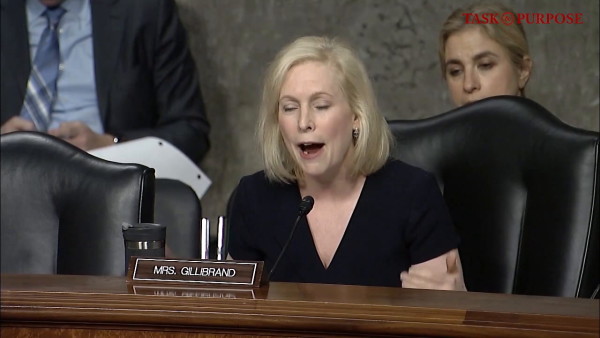

Three U.S. military judges overturned a West Point cadet’s 2017 rape conviction on Monday, saying that it didn’t seem plausible that it could have happened without both parties’ consent.
According to the court’s written decision, and first reported by Military Times, the judges threw out the conviction of cadet Jacob Whisenhunt’s and his previous sentence of 21 years behind bars. He was accused of sexually assaulting a fellow cadet while she slept during a summer field training event in 2016.
He was found guilty by “a panel of West Point faculty and staff,” the Associated Press reported, and along with his prison sentence, was dismissed from the Army.
Whisenhunt was accused of digitally penetrating the woman, and then raping her. Per the court documents, his “semen was found” inside her sleeping bag.
The woman said at the time that she “woke up to [Whisenhunt] penetrating her with his finger and then with his penis,” and that she “remained frozen in the fetal position during the entire assault.”
Whisenhunt’s defense said that the sex was consensual, and his actions that night “were precipitated by a series of escalating and consensual touching.”
“[T]o be convinced of [Whisenhunt’s] guilt, we would have to conclude beyond a reasonable doubt that the sexual acts could plausibly occur (and would not be discovered) without active cooperation from both parties,” the judges wrote. “[I]n the unique circumstances here … it is hard to conclude beyond a reasonable doubt that [Whisenhunt] could complete the charged offenses without cooperation or detection.”
The judges went on to say that it’s hard to believe that Whisenhunt wouldn’t have anticipated the woman making “any reflexive noise or movements,” and that there was “no evidence” he threatened her, tried to cover her mouth, or further prevent her from crying out. It also says that there isn’t evidence he tried to hide his appearance or coerce her, meaning the woman would be able to identify him if she were to press charges later, and that there were no signs that he tried to remove evidence of his semen from her sleeping bag.
Essentially, the judges argued that it was unlikely he raped her because it would have made too much noise, and because he didn’t take actively take steps to cover it up.
The judges also said that “taking into consideration that the panel saw and heard the witnesses and we did not, we nevertheless conclude that the appellant’s convictions are factually insufficient.”
All charges, and Whisenhunt’s sentence, were dropped. As Military Times pointed out, he’s now able “to be fully reinstated at West Point, or request his dis-enrollment.” And because he was charged before he had completed two years, he’s not responsible for paying back his education, nor is he beholden to any military service.
West Point Academy spokesperson Lt. Col. Christopher Ophardt told Military Times: “West Point is aware of the appellate court’s ruling and will take appropriate action.”
Sexual assault at military academies is a longstanding issue — the Pentagon reported this year that it has risen by almost 50% in two years — and sexual assault in the broader military population has reached a four-year high. Upon the release of the military’s sexual assault report, deputy director of the Pentagon’s Sexual Assault Prevention and Response Office, Nate Galbreath, disagreed with the assumption that what the military is doing isn’t working.
“We know that what we do works with people,” he said.